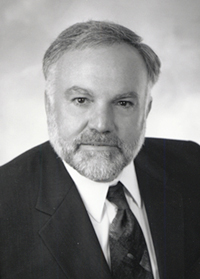
|
CONNECTIONS
|
IDAHO
ITD
HOME
IDAHO DMV
ITD NEWS
HIGHWAY
SAFETY
IDAHO STATE
POLICE
TRAVEL SERVICES
STATE OF IDAHO
NATIONAL
AASHTO
AAMVA
AAA of IDAHO
FEDERAL HIGHWAYS
FEDERAL AVIATION
IDAHO STATE POLICE
NHTSA
NTSB
TRB
U.S. DOT
Idaho
Transportation
Department
Public Affairs Office
P.O. Box 7129
Boise, ID 83707
208.334.8005
Fax: 208.334.8563
Email

Bywater promoted to AG's criminal division
Steve Bywater’s second-floor office is symbolic of the transition he’s about to make.
For the past four years, as a deputy attorney general assigned to the Idaho Transportation Department, Bywater has looked out the window on Boise foothills and beyond. When he trades that office for one inside the J.R. Williams Building (affectionately known as the Hall of Mirrors) the view will be much different.
More introspective. Internal. More administrative and less hands-on. More process.
 Bywater
came to the transportation department via the Attorneys General office
in 2000 from Cassia County where he was a prosecuting attorney for 24
years. He will assume a new position July 6 – chief of the criminal
division of the AG’s office. He replaces Michael Henderson who
recently accepted a position with the Idaho Supreme Court.
Bywater
came to the transportation department via the Attorneys General office
in 2000 from Cassia County where he was a prosecuting attorney for 24
years. He will assume a new position July 6 – chief of the criminal
division of the AG’s office. He replaces Michael Henderson who
recently accepted a position with the Idaho Supreme Court.
The criminal division is composed of several units, including criminal appeals, death penalty litigation (both state and federal), special prosecutions unit, investigations and legal services to three state agencies – Idaho State Police, Idaho Department of Corrections and the Idaho Department of Juvenile Corrections.
Bywater earned a law degree from the University of Utah in 1976 and a bachelor’s degree in sociology from the same institution in 1973. As head of the criminal division, he will supervise all five units and a staff of about 30 people.
He will be one of six division chiefs in the Attorneys General office that also includes natural resources, contracts and administrative law, civil litigation, human services, intergovernmental and fiscal law. About 170 combined attorneys and staff work in the Attorney General’s office.
Bywater could talk specifically about ITD legal cases that are contained in brown boxes on his credenza, desk and floor and have migrated into the outer office. But he won’t. Attorney-client privilege and a commitment to look forward.
Some cases will linger, to be passed on to his successor, as he inherited them. The most satisfying have reached resolution and are now part of history.
Those are the cases he will reflect favorably on after moving to his new quarters near the capitol.
“I have really enjoyed working in the eminent domain and contract areas, as well as environmental cases. I’ve had the opportunity to do all of those kinds of cases here, along with human resource and civil rights. The most rewarding part has been working with ITD’s management, the transportation board and the director.”
The transportation department has made great strides addressing construction claims and resolving related disputes earlier in the process, Bywater explains. Creation of dispute resolution boards is largely responsible for expediting and settling claims.
He also has witnessed steady growth in the numbers and complexity of issues related to property acquisition and the environment.
“So often it’s not an area where there’s a clear winner and clear loser, but where we have been able to strike a balance to meet multiple interests and achieve outcomes that all parties can live with.”
In that regard, the challenges facing Idaho are similar to those confronting other states, Bywater said. But Idaho has learned from some of the more populous states and avoided some of the problems they have encountered.
“The biggest challenge for the ITD Legal Section will be handling an ever increasing case load that is more complex with the staff and resources we have.”
He speaks in terms of “we” although he is not technically an ITD employee. He and four other attorneys are assigned to the department from the Attorney General’s office to work exclusively on transportation-related legal cases.
“I’m not a department employee, although I have been treated like one by everyone in the department. The model seems to work very well. It helps us to remain objective in our advice to the executive team, board and director, while at the same understanding what they are working to accomplish and assisting them to find the best legal route to their objectives.
“From my point of view it has worked very well. Hopefully, the department feels the same way.
“I certainly leave with a much greater understanding and appreciation for the complex issues the transportation department faces. People sometimes focus on problems instead of the good system that we have and how well it operates.”
The Attorney General’s office will review potential
candidates for Bywater’s successor and coordinate with ITD Director
Dave Ekern and board members. The process could take several weeks.